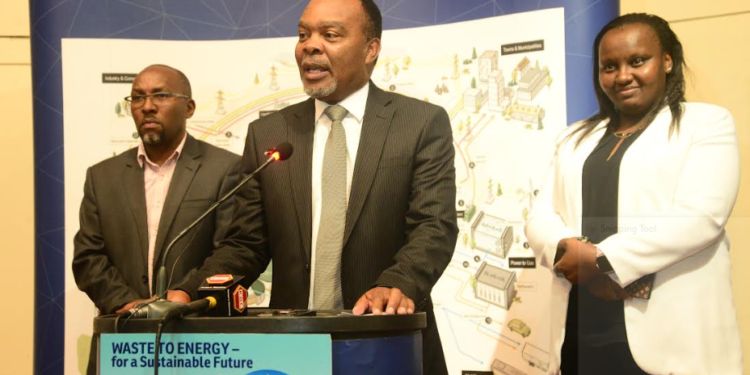Zurich-based waste management technology provider Hitachi Zosen Inova (HZI) has announced its entry into the Kenyan market through a partnership with Sintmond Group Limited.
Speaking on the sidelines of the Waste to Energy Congress, HZI Emerging Markets Senior Sales Director Urs Altenburger says the partnership includes the development of local waste management plants as a long-term solution for recycling waste into Electricity and Fuel.
“Africa is currently recycling only 4 percent of its waste, a far cry from the African Union vision that African cities will be recycling at least 50 per cent of the waste they generate by 2023. The first priority for Africa is to address the public health imperative, by ensuring that all citizens have access to proper waste management services. Comprehensive, reliable and regular city cleansing and controlled disposal of waste is the foundation of every integrated waste management system,” Altenburger noted.
Read: CMA Forced To Relax Rules As Firms Shun The Bourse
Sustainable waste management is a devolved function under the Constitution of Kenya. The 47 county governments have the lead role in delivering sustainable waste management services. The move comes even as Nairobi County is planning to set up its first garbage-powered electricity plant in Ruai.
“We are ready to help counties deal with their waste management, through our Waste-to-Energy (WtE) technologies. Waste being one of the contributors of greenhouse gasses affects climate change. Improper management of waste disposal ultimately hinders the achievement of sustainable development,” said Sintmond Group Limited CEO Richmond Gatu.
Nairobi is currently generating over 5000 Metric Tonnes of waste per day with most of it going to the Dandora dumpsite which has been full for years. The site was officially opened in 1975 and was considered full in 2001.
Read: Zamara Feted As The Overall Best Insurance Broker Of The Year
On her part, Director Environment Water and Sanitation Maureen Njeri said Nairobi Metropolitan Services is an inch closer to establishing the plant as the county has already identified six sites for waste recovery facilities.
“We are committed to getting Nairobi to Zero Waste by 2030, land has already been identified, and we are waiting for the project feasibility study to be finalized,” she added.
Kenya has made significant commitments to environmental protection. Article 42 in the Constitution of Kenya (COK 2010) guarantees every person the right to a clean and healthy environment.
Read: KEMSA Inventory Management Tightened In New Policy
National Environmental Management Authority (NEMA) recent statistics indicate that Kenya generates an estimated 22,000 tons of waste per day translating to 8 million tonnes annually. 40 percent of this waste is generated in urban areas; with urbanization growing by 10 percent annually, the country’s urban population will be generating an estimated 5.5million tonnes of waste every year by 2030.
Currently, NEMA estimates that 60 to 70 percent of waste generated is organic, 20 percent plastic, 10 percent paper, 1 percent medical waste and 2 percent metal.
The congress themed “It is Time to Act” attracted over 100 participants representing a cross-section of energy sector stakeholders in Africa.
Email your news TIPS to editor@thesharpdaily.com














